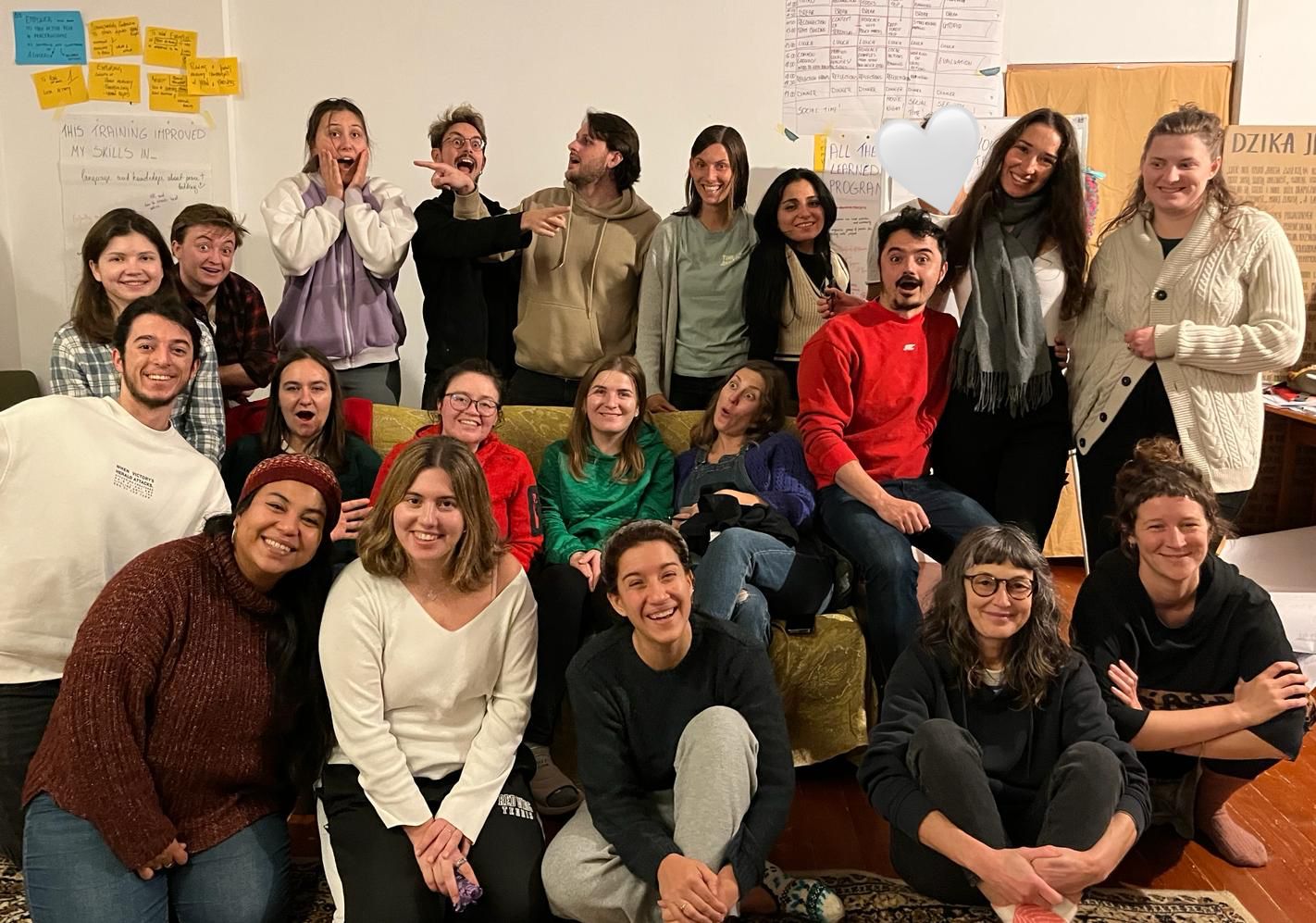Explore Our Peace Fellowship Activities
The entire project consisted of several activities, including training courses, e-learning, human rights mapping, local actions, toolkit creation and dissemination.
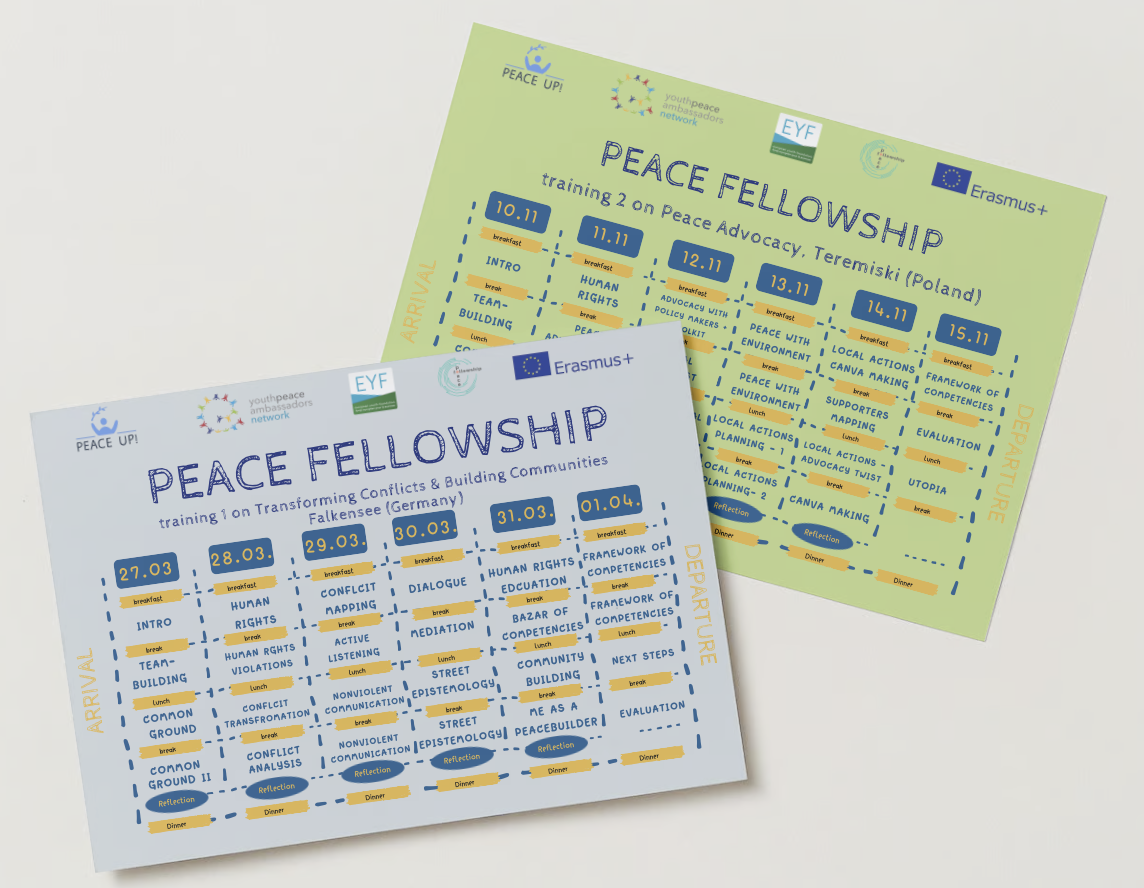
Training courses
The Peace Fellowship project started for Fellows with the first training course”Transforming Conflicts – Building Communities,” which took place from March 26 to April 2, 2023, in Falkensee, Germany. This training fully focused on conflict transformation. Participants explored concepts like peace, non-violence, different forms of violence, conflict resolution, peacebuilding, and human rights. They learned how to connect human rights education with non-violent conflict transformation and worked together to develop a competency framework for peace education. They also engaged in community and conflict mapping to understand local impacts and shared their perspectives on violence and conflict. The training strengthened their skills in non-violent approaches, such as non-violent communication, active listening, and empathy, and included planning for future local activities.
.
The second training, “Peace Advocacy,” was held from November 9-16, 2023, in Teremiski, Poland. This training aimed to empower young people in peacebuilding by equipping them with advocacy skills. Participants explored peace advocacy, peacebuilding, and human rights, and learned from examples of peace advocacy that could inspire local actions. They enhanced their ability to stand against human rights violations and advocate for peace both online and offline. They revisited elements of the Peace Fellowship, like the competency framework for peace education and mapping realities, and planned at least one local activity in each partner country. They also developed joint advocacy campaigns within the Youth Peace Ambassadors Network.
.
E-LEARNING
Throughout the project, fellows had access to a series of online modules on the YPAN Academy platform. These modules covered topics like basic human rights and peacebuilding concepts, tools for peacebuilding, the values of peace education, grassroots peacebuilding, mapping local realities, project management, monitoring and evaluation for youth initiatives, fundraising, Erasmus+, facilitation tips, and self-care for activists. The e-learning included both theoretical and practical tasks that fellows could complete individually or in small groups, with opportunities for discussion in forums.
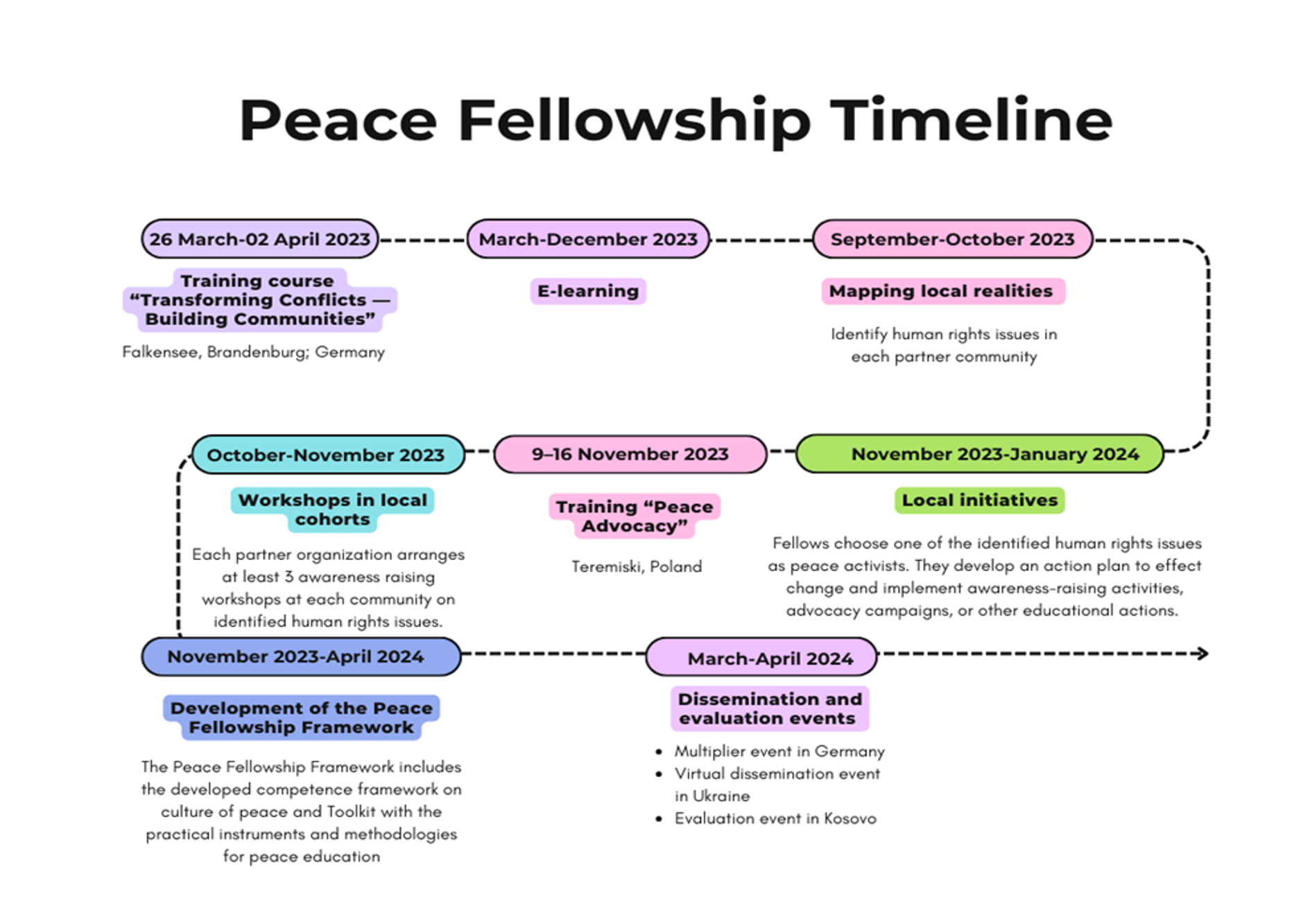
Human Rights Mapping
YPAN fellows, with support from each partner, conducted a human rights mapping exercise to identify issues in their local communities. The results, presented during the second training in Poland, helped develop action plans for local initiatives. Issues identified included the devaluation of young people’s contributions in Ukraine, pushbacks of refugees and LGBTQ+ discrimination in Poland, migrant workers’ rights and human trafficking in Spain; minority rights violations and ethnic tensions in Kosovo, discrimination against marginalised groups in France, xenophobia and Diminishing space for freedom of expression (in the context of the ongoing conflict between Palestine and Israel) in Germany and normalisation of violence and discrimination of minorities in Türkiye.
Local Activities
Local Workshops
Prior to the local actions, Fellows were offered three workshops in each country, totalling 21 workshops. These workshops were designed to deepen their understanding of issues relevant to their specific communities. The workshops provided an opportunity for Fellows to learn about existing tools and best practices related to the identified issues and facilitated networking and cooperation among Fellows, experts, and stakeholders.
Local Actions
The local actions within the Peace Fellowship were designed to apply the skills and knowledge gained during the project to the specific contexts of the fellows’ communities. Participants established local networks to support their peacebuilding efforts. Each partner organization provided local support, ensuring the peace efforts could have a broader impact.
Finally, Peace Fellows together with local partners, developed action plans for awareness-raising activities, advocacy campaigns, or educational initiatives, working closely with community members and local stakeholders to foster a culture of peace.
Objectives of local actions were:
to transform competencies acquired at Peace Fellowship into practice
to act as peacebuilders in local realities
to address challenges to human rights which were mapped in mapping activity
to develop local networks of peacebuilders.
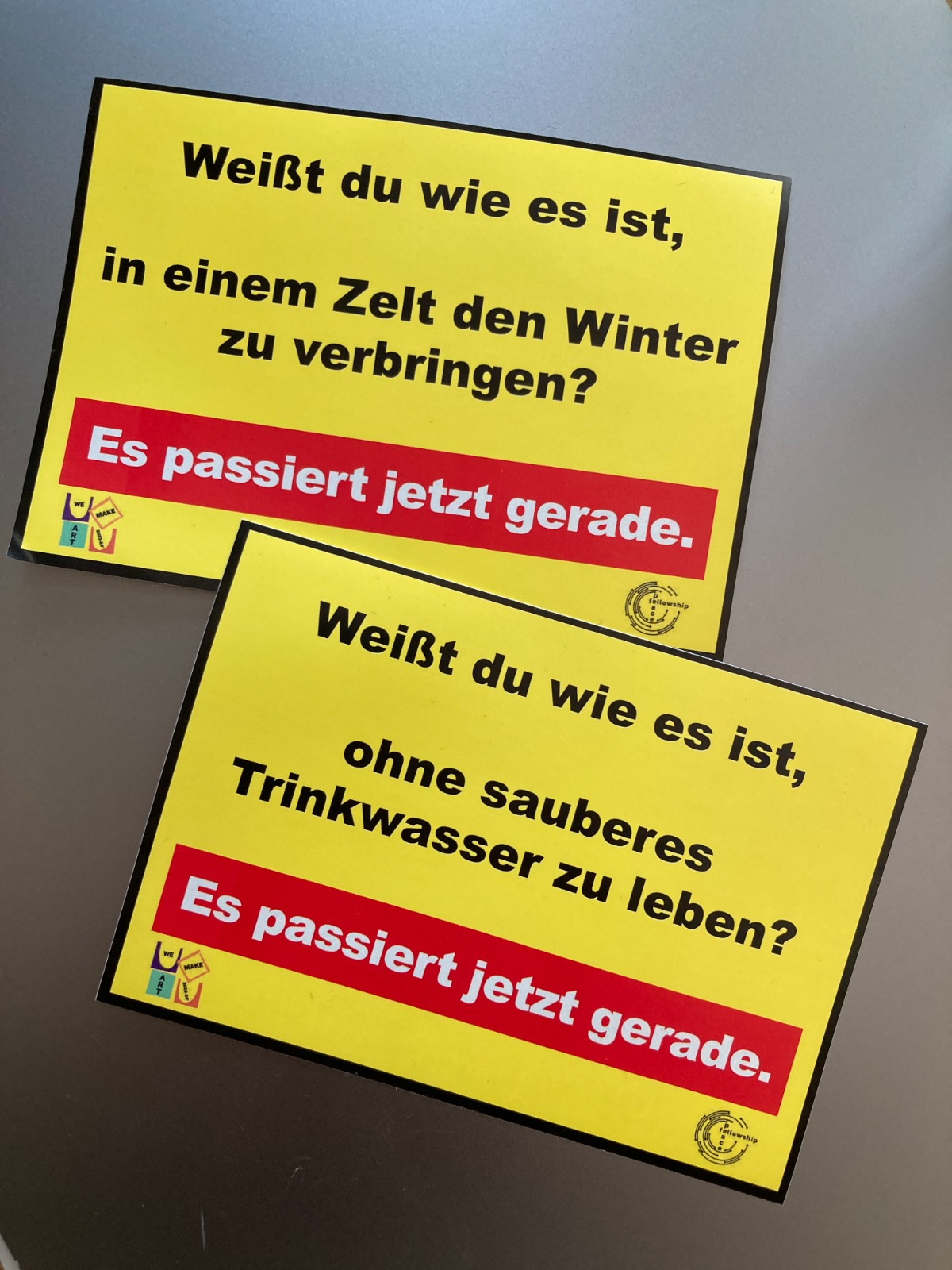
Germany: Stickers for human rights
In Germany, the local action involved creating and distributing stickers to raise awareness about the lack of freedom of expression, especially regarding the Israel-Palestine conflict. The initiative also aimed to highlight various global human rights violations and foster empathy.
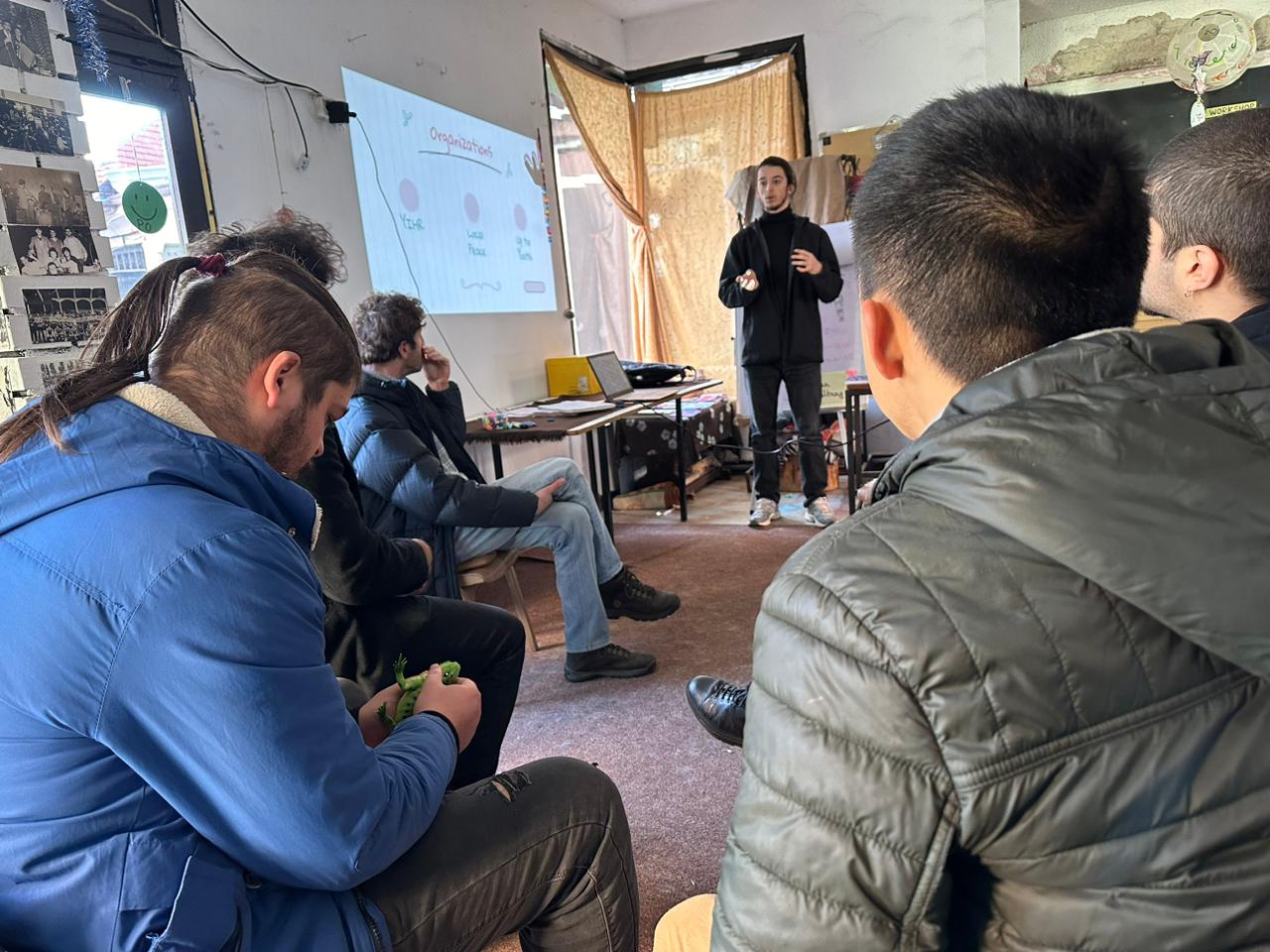
Kosovo: Together in peacebuilding
In Kosovo, a one-day event titled “Together in Peacebuilding” included theoretical presentations on peace, conflict, and violence, along with successful local peacebuilding initiatives. Activities helped participants recognize silent forms of violence and how to address them.
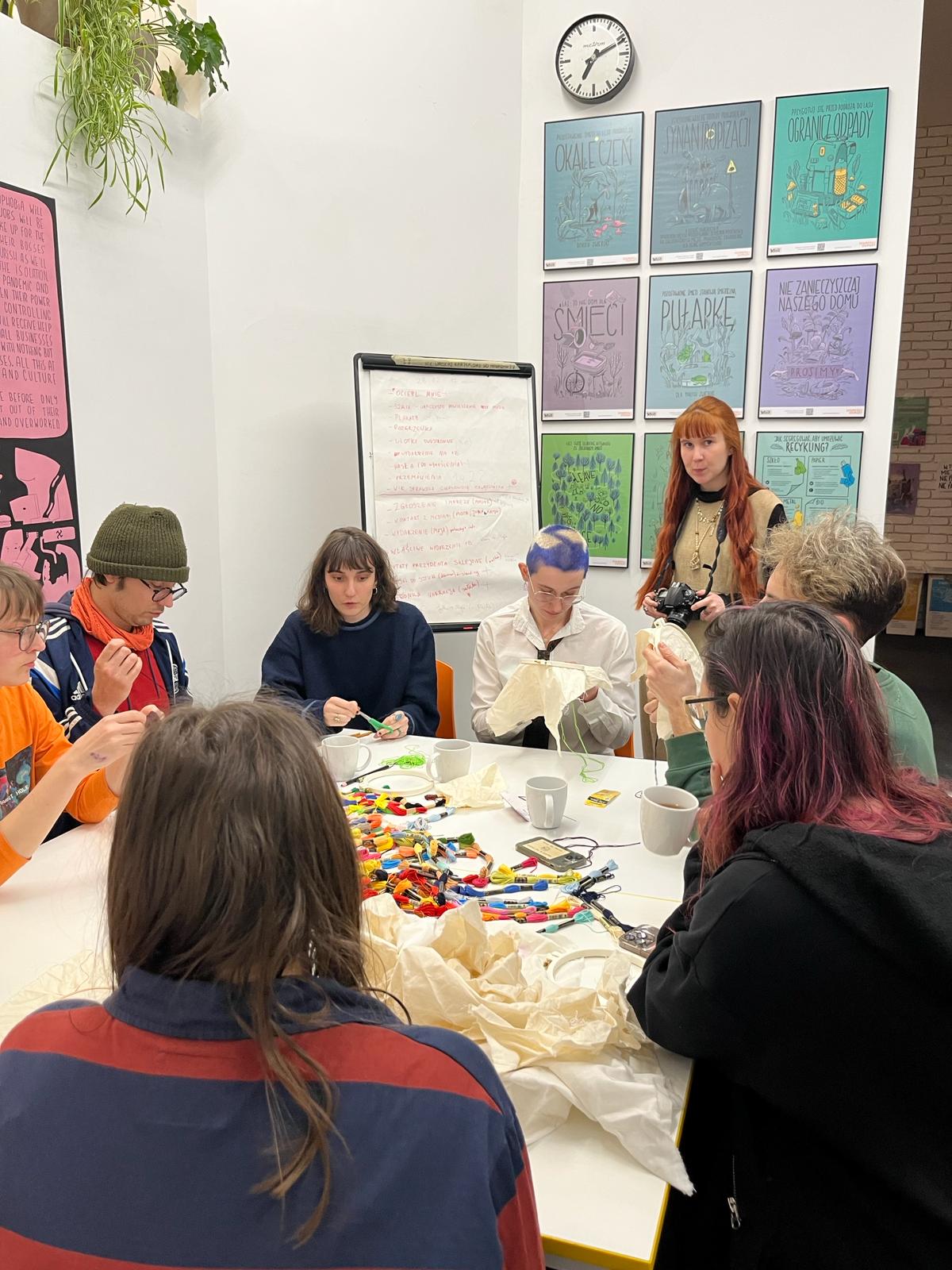
Poland: Day of artivism and craftivism
Poland’s local action was a day dedicated to artivism and craftivism, focusing on the pushbacks of refugees at the Polish-Belarusian border. The event combined a theoretical introduction to artivism and craftivism with creative activities like stencil graffiti, screen printing, and embroidery.
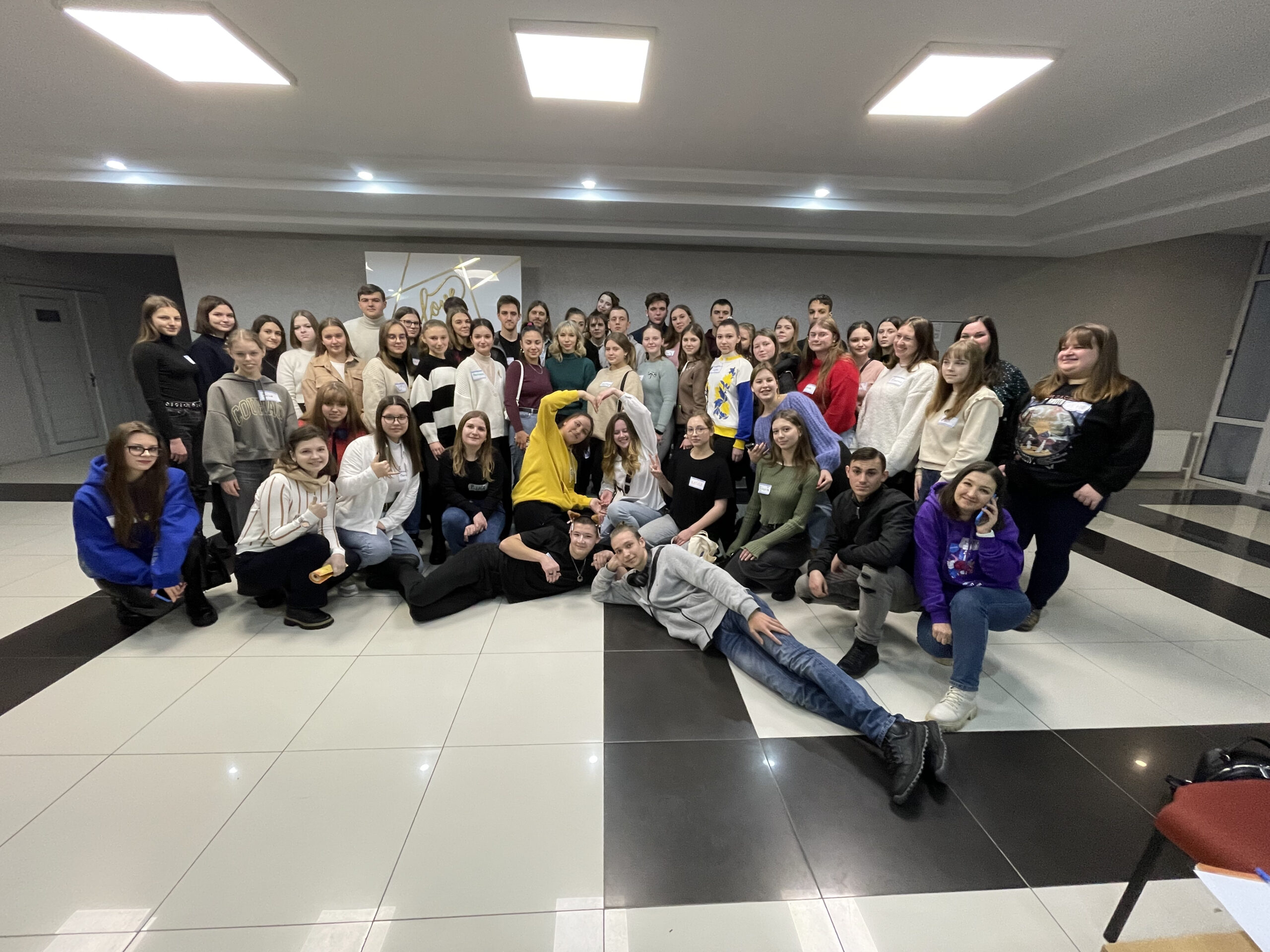
Ukraine: Youth forum "About youth: see, try, and have your say"
In Ukraine, a forum for young people from the Sumy region was held on January 26-27, 2024. Over 80 young participants engaged in activities such as an “avenue of opportunities” showcasing local youth initiatives, skill development workshops on youth participation, and an open space for discussing and solving local youth issues..
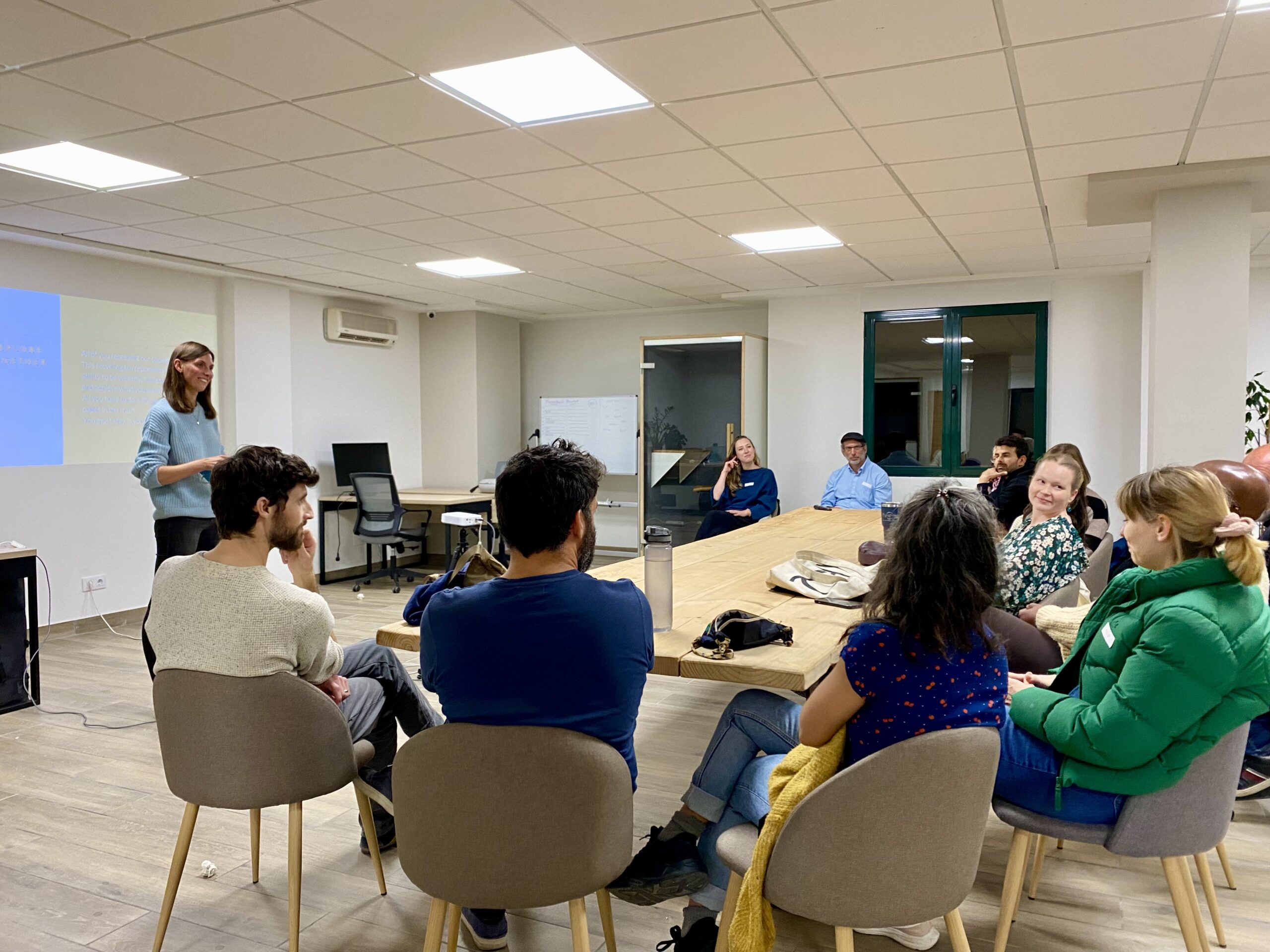
Spain: Workshop on xenophobia and gentrification
Held in Javea, Spain, on January 31, 2024, this workshop aimed to address xenophobia and gentrification, fostering connections between diverse community groups. Participants engaged in self-reflection and awareness activities, leading to meaningful conversations and a deeper understanding of different perspectives.
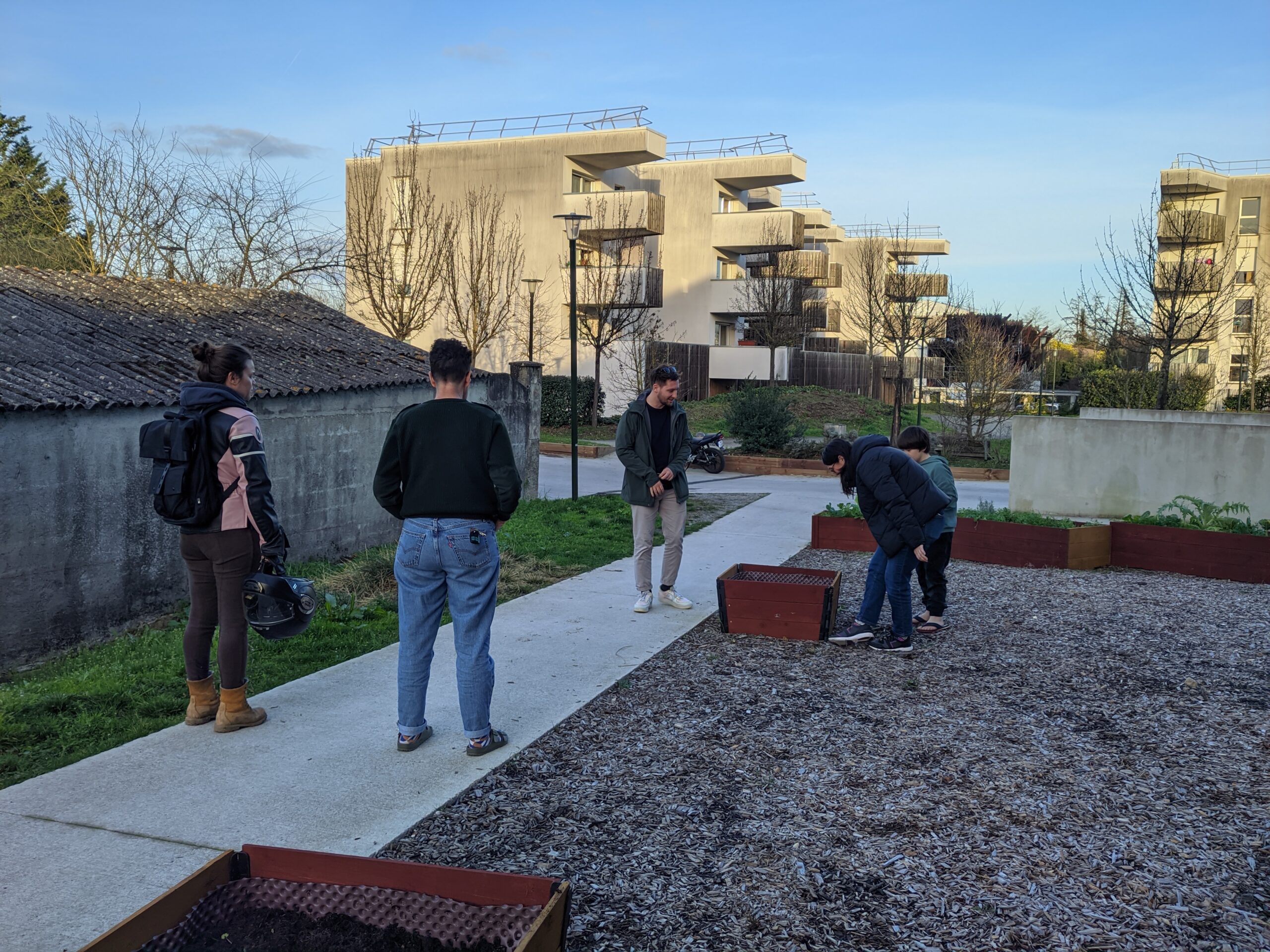
France: Workshops on food access and community building
In France, two main actions were conducted: a workshop on building gardening containers and growing food, and a community event in Thonon that brought together diverse groups for a communal cooking event and dinner, promoting ecological education and community connections.
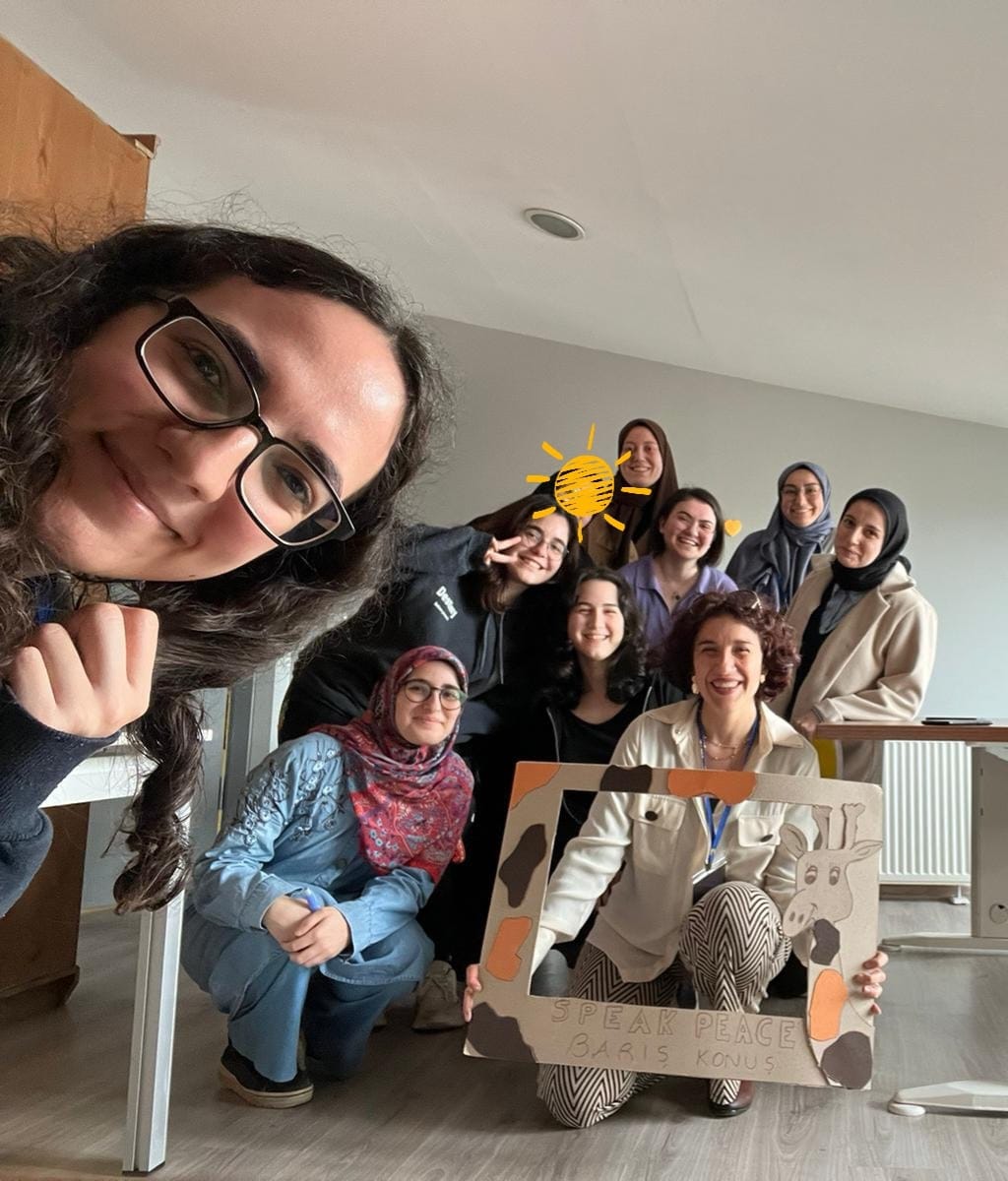
Turkey: Non-violent communication skills for University students
Turkey’s local action focused on empowering university students at Bogazici University with non-violent communication skills. The initiative aimed to integrate peace education into the academic curriculum, targeting future educators to embed principles of non-violent communication and peacebuilding in their teaching careers.

